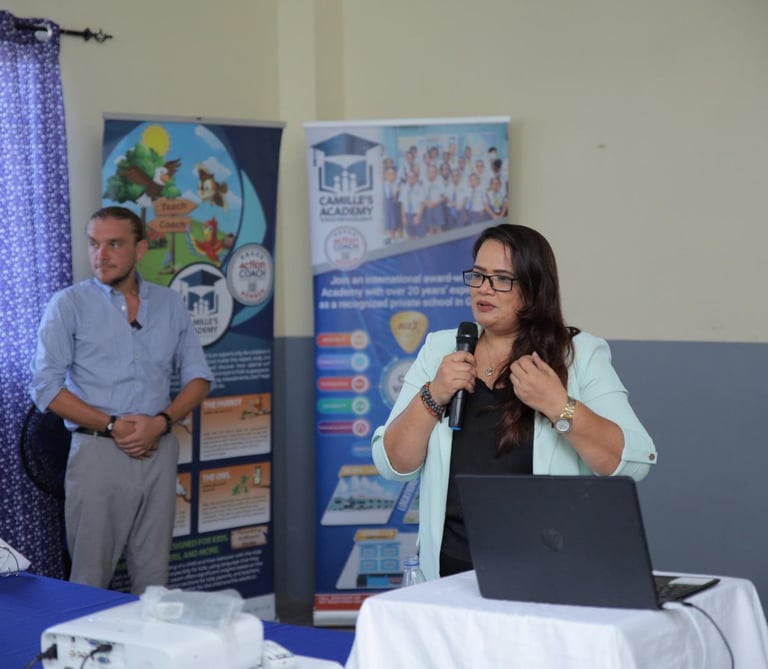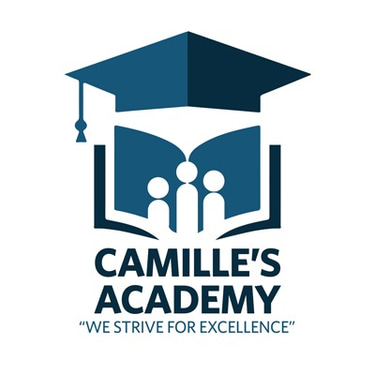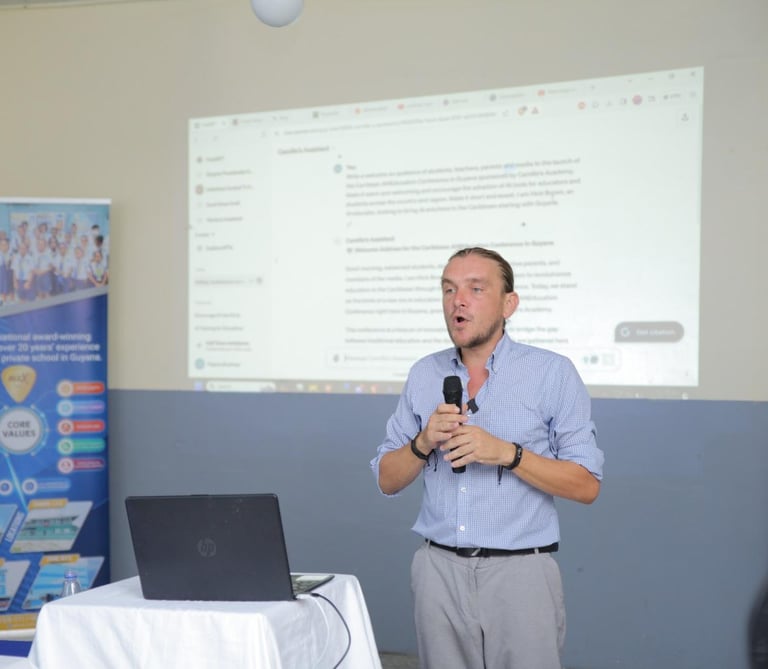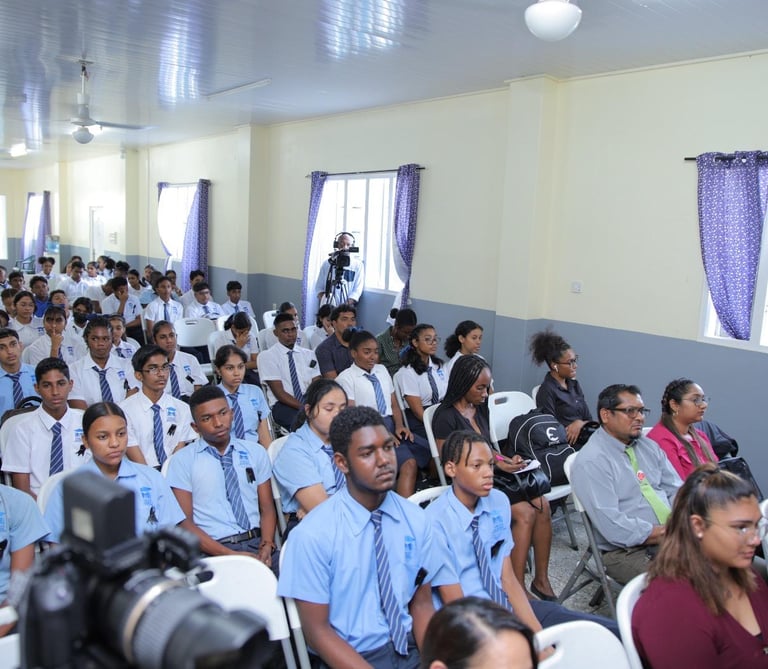Camille’s Academy launches inaugural AI4 Education conference
– teachers and students across Guyana urged to tap into the benefits of new technology
Kaieteur News – In a world marked by technological advances, Artificial Intelligence (AI) has emerged as the newest wave of development offering a myriad of possibilities for personalizing learning, addressing the unique needs of each student, and providing educators with insights to optimize their teaching strategies.
A section of the gathering at the launch of the inaugural AI4education
Nick Brown, the founder of the Caribbean AI Institute addresses the launch
CEO and founder of Camille’s Academy Inc., Camille Deokie-Gorakh.
As such, Camille’s Academy Inc (CAI), a leading provider in education within the private sector, collaborated with the Caribbean AI Institute last Thursday to launch the inaugural AI4Education Conference. The conference, slated to take place in April of this year, is being touted as the first-of-its-kind in the Caribbean.
Addressing the gathering of students and teachers at the launch of the conference at CAI’s Lusignan, East Coast Demerara location, were Nick Brown, the founder of the Caribbean AI Institute and CEO and founder of Camille’s Academy Inc., Camille Deokie-Gorakh.
Brown explained that the developed world is undoubtedly moving at a faster pace by embracing and using cutting-edge technology to its advantage. Brown noted that Western countries are investing billions of dollars in learning how to apply AI.
“In the Western Countries, AI is being used, whether it is in their governments, their educational systems, or their industries…” Brown posited. As such, he urged teachers and students to embrace AI and make it part of their learning experience.
The Caribbean AI Institute founder emphasized that the objective is not to replace teachers or the learning process but to make it work simpler, thereby preparing learners for the future.
“As the world enters the Fourth Industrial Revolution, investing in AI is an investment in the future, we are moving into an unchartered future. The future that you guys will be growing up in is going to look radically different than the way the world looks today,” Brown said
Brown advised attendees to brace themselves by utilising as much technology as possible in their daily lives, even though one cannot precisely foresee where technology will go in the next three decades.
He continued, “By 2030, artificial intelligence is expected to replace many white-collar jobs. A lot of the jobs that we currently aspire to as future university graduates…call centres, BPO (Business Process Outsourcing). Those jobs are very likely to be replaced by Artificial Intelligence.”
As a result, the AI Caribbean Institute founder believes that it is important for educators to lead the way in adopting technology.
“Students learn through observations and teachers are the greatest role models. So, the more teachers and educators in this country who can adapt to using AI in their workflow, for curriculum design, for developing assignments, the more students will be empowered to use technology,” he asserted.
He noted too that while some individuals have approached AI with “resistance and fear” or under the notion that using AI in the classroom can lead to cheating, he disagrees fundamentally. He believes students should be encouraged to use AI to enhance their school work rather than to entirely rely on it.
“I think teachers must change the way they teach to accommodate the new technology that is there. Banning your students from using AI is probably one of the worst things educators can do…”
Brown said at present, AI tools exceed 5,000 with new techniques being introduced daily.
He noted that the mission of his organization is to provide developing nations like Guyana with AI development tools so they can be up to date with the swift pace of technological progress.
Meanwhile, Deokie-Gorakh explained how AI would advance the educational system.
According to her, the CAI has been a leader in transitioning from the “traditional classroom” in light of technological advancements.
While there are concerns about AI replacing humans in several sectors Deokie-Gorakh assured: “The programme we are launching today is not to replace humans. We know that in a school environment socialization… having that personal experience is very, very important. The human element will also be the key in ensuring that we produce quality leaders and we continue to provide quality education.”
The CEO noted the vast benefits that educators and learners alike can yield from AI tools.
“From personalized assistants for teachers, AI tutors for students, adaptive learning platforms that adjust to the pace of individual learners to AI-driven analytics offering real-time feedback and predictions on student performance, the potential for AI to transform education is immense,” she said.








